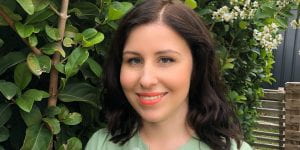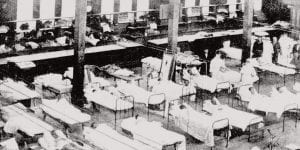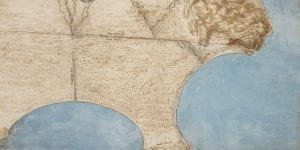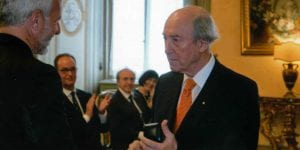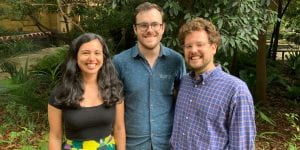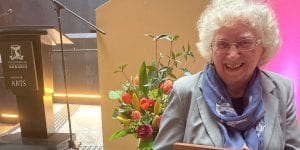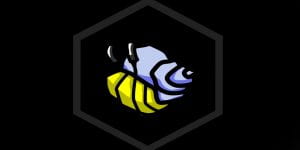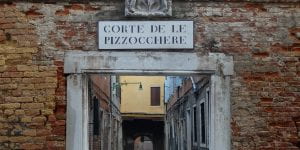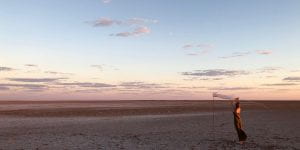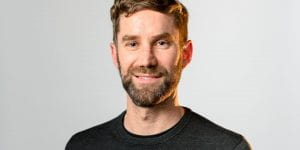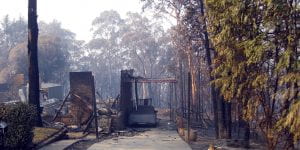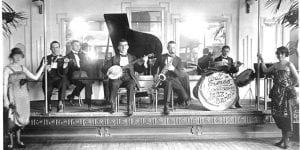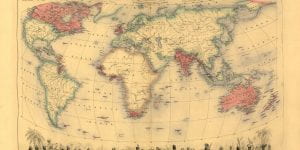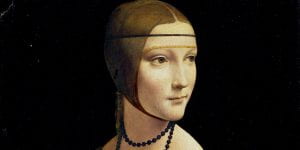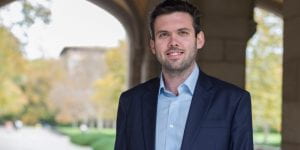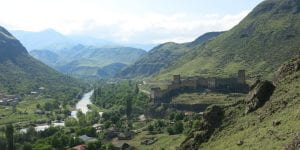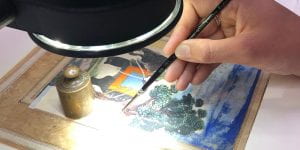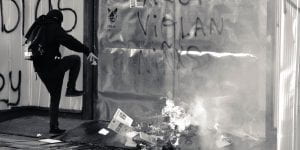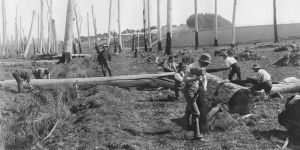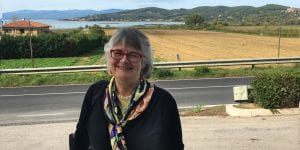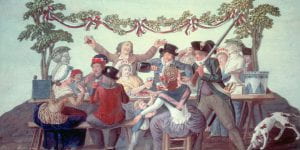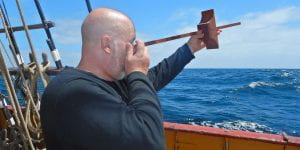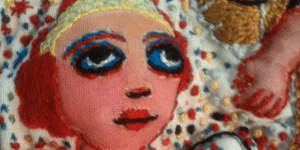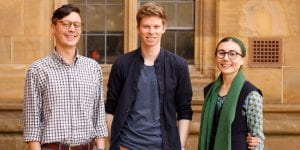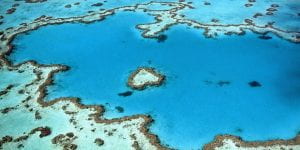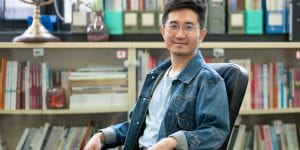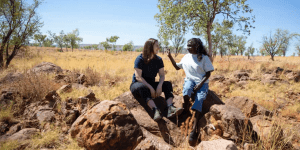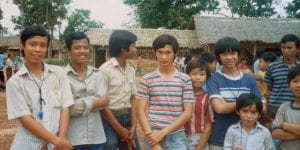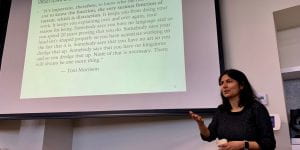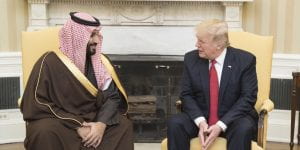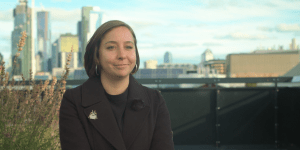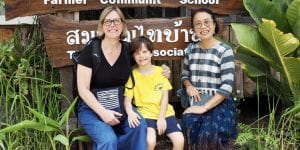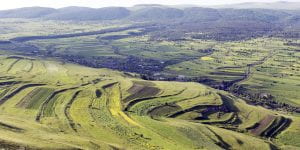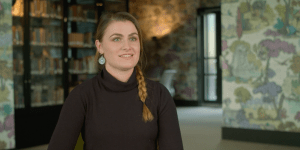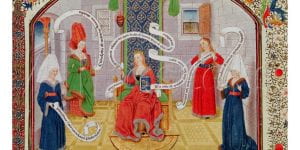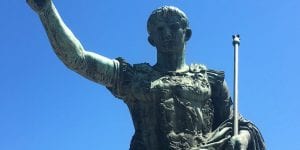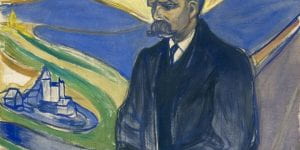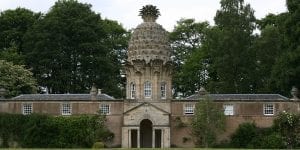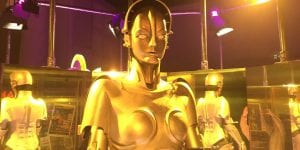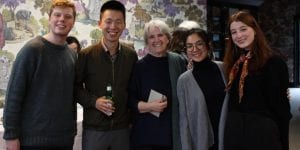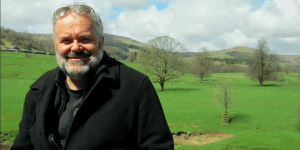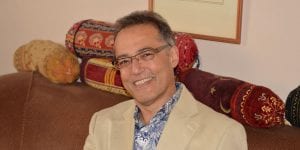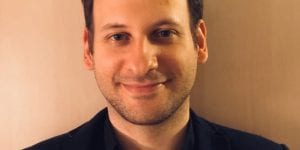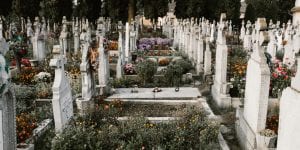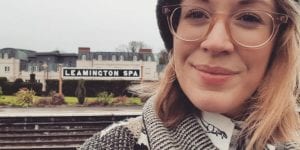Category: Research
-
Meet Dr Sarah Bendall, McKenzie Fellow in History
In 2020, Dr Sarah Bendall joined the History program as a McKenzie Postdoctoral Fellow. A historian of material culture, Sarah specialises in the dress of sixteenth- and seventeenth-century England, Scotland and France. Sarah completed her PhD at the University of Sydney in 2018 and joins us after a post-doctoral fellowship at UWA working on the […]blogs.unimelb.edu.au/shaps-research/2020/05/08/meet-sarah-bendall
-
A Journal of the Plague Year: An Archive of COVID19
The Melbourne History Workshop in SHAPS has launched the Melbourne node of ‘A Journal of the Plague Year: An Archive of Covid19’, in collaboration with our friends at Arizona State University, who initiated the project on 13 March 2020. MHW are encouraging everyone to document how COVID19 has affected their lives. Share your story in […]blogs.unimelb.edu.au/shaps-research/2020/03/27/a-journal-of-the-plague-year-an-archive-of-covid19
-
Were These the Good Old Days? The 1919 Flu Pandemic in Australia
As we watch the global COVID-19 pandemic unfold, some scholars are looking back to the history of the worldwide influenza pandemic of 1918 to 1920. Mary Sheehan, PhD student in SHAPS, discusses the experience of those events 100 years ago in Australia, in this blog post, republished from Living Histories. Watching the rapid spread of […]blogs.unimelb.edu.au/shaps-research/2020/03/15/were-these-the-good-old-days
-
Out of Ancient Marshes
Archaeology at the site of the former Pontine Marshes has uncovered a massive but forgotten feat of ancient land reclamation revealing the early determination of the Romans to bend the world to their will. Dr Gijs Tol from SHAPS and Dr Tymon de Hass from Leiden University explore the discoveries on the site of the […]blogs.unimelb.edu.au/shaps-research/2020/03/08/out-of-ancient-marshes
-
A Conversation with Professor Emeritus Ron Ridley, Recipient of the 2019 Premio Daria Borghese
It’s not often that you will hear an esteemed academic describe him or herself as the “last of the scallywags”, but this phrase trips easily off the tongue of Professor Emeritus Ronald T. Ridley. His career has been distinguished by a dazzling versatility and range, earning him a long list of accolades. But he somehow […] -
Listening Across Boundaries: The Greg Dening Memorial Lecture 2019
Emeritus Professor Greg Dening (1931–2008) occupies an important place in the history of the History program at the University of Melbourne. As Tom Griffiths put it: “Greg was not only a wonderful historian but also a gifted teacher, and he believed that immersion scholarship could be transformative — of oneself, and also of the world […]blogs.unimelb.edu.au/shaps-research/2020/02/25/greg-dening-lecture-2019
-
Pioneer, Innovator, Mentor: Reflections on Pat Grimshaw’s Influence and Legacy
In December 2019, Professor Emeritus Patricia Grimshaw was awarded the University of Melbourne’s T.G. Tucker Medal. Named after the first Dean of Arts at the University, Thomas George Tucker, the Medal is awarded for outstanding academic achievement and contributions to the Faculty of Arts in the areas of teaching and learning, research, engagement and leadership. […]blogs.unimelb.edu.au/shaps-research/2020/02/17/pioneer-innovator-mentor
-
Alternative Social Media Platforms: An Ethnographic Study of the Scuttlebutt Community
Can Open-Source Software (OSS) platforms offer ethical alternatives to Facebook and Twitter? How do technologies and social values interact with one another? And what might we learn from a close-up look at how OSS communities operate? A new research project in the History and Philosophy of Science explores these questions. Having found an intersection […] -
The Life You Can Save
Celebrating the tenth anniversary of his influential book The Life You Can Save, Professor Peter Singer discusses why we need to do more to improve the lives of people living in extreme poverty in this 2019 episode of the University of Melbourne’s Eavesdrop on Experts podcast. To listen, press play below. For the original podcast episode and […]blogs.unimelb.edu.au/shaps-research/2020/02/06/the-life-you-can-save
-
Exploring Venice’s Past and Present
From September to December 2019, History postgraduate researcher Jennifer McFarland was based in Venice as one of two Australasian Centre of Italian Studies (ACIS)-Save Venice research fellows at Save Venice Inc.’s Rosand Library and Study Centre. The fellowship supported archival research for her Master’s thesis, which focuses on the visibility and social role of pizzochere, […]blogs.unimelb.edu.au/shaps-research/2020/01/28/exploring-venices-past-and-present
-
Location, Relationships & Practice: The Con/servare Melbourne Forum 2019
In October 2019 the Grimwade Centre hosted a forum run by Con/servare, an international network for researchers and practitioners in the fields of conservation, material culture and attribution studies, co-founded in 2018 by Grimwade PhD candidates Ainslee Meredith, Julianne Bell and Eliza O’Donnell. In this blog post, Eliza O’Donnell introduces the Con/servare network, and reports […]blogs.unimelb.edu.au/shaps-research/2020/01/21/location-relationships-practice
-
Researching Masculinities and Violence Against Women: An Interview with Dr Shane Tas
After completing a PhD in History in 2019, Dr Shane Tas went on to become Senior Policy Advisor, Masculinities at Our Watch. In this capacity he acted as project lead and author of a major report, Men in Focus: Unpacking Masculinities and Engaging Men in the Prevention of Violence Against Women, launched in November 2019. […]blogs.unimelb.edu.au/shaps-research/2020/01/09/researching-masculinities-and-violence-against-women
-
How to Care for and Recover Personal Items after Bushfire
The devastation wrought by the Australian bushfires has been immense and, as the fires continue to burn, the final loss won’t be known for many months. While the impact on the environment, human and animal life is overwhelming, for many individuals the loss of personal items such as photographs, documents, artwork and personal treasures is […] -
Protecting Australian Women from American Jazz: The Hidden Aim of the 1927 Tariff Inquiry
The 1927 Tariff Board inquiry into the import duty on gramophone records coming into Australia was about more than industry protection. In fact the piano roll industry, which might be expected to be the one most concerned about the impact of imported records, wasn’t particularly worried. But others were. Henry Reese, SHAPS PhD graduate, explores […] -
Uncovering Connections in Britain’s Empire: An Interview with Professor Zoë Laidlaw
Upon finishing her Honours at Melbourne, Zoë Laidlaw went on to complete her postgraduate degree at Oxford. After 20 years in the United Kingdom, she returned to the University of Melbourne in September 2018. PhD candidate Jonathan Peter spoke to Zoë recently about her experiences as an academic, her research interests, as well as current […] -
The Remarkable Journey of Leonardo’s Inscrutable Masterpiece
Leonardo da Vinci’s portrait of Cecilia Gallerani, known as the Lady with an Ermine, is one of Poland’s national treasures, but the painting has had an extraordinary history. Dr Darius von Güttner, Principal Fellow (Honorary) in SHAPS, tells us more in an article republished from University of Melbourne’s Pursuit. Over a decade ago the Czartoryski […] -
All Roads Lead to Rome: The Thérèse and Ronald Ridley Scholarship
In 2019, Thérèse and Ron Ridley established a scholarship to enable a PhD student in the Classics and Archaeology program at the University of Melbourne to travel to the British School at Rome. Larissa Tittl spoke with Ron Ridley, Professor Emeritus in the School of Historical and Philosophical Studies, about the new scholarship and the […] -
Philosophy on the Small Screen
In 2019, Senior Lecturer in Philosophy Dan Halliday teamed up with Snodger Media and the ABC to make a documentary series on practical ethics. The result was a series called Ethics Matters, which was integrated into high school curricula in Victoria and New South Wales. He speaks here with Carley Tonoli about his experience in […]blogs.unimelb.edu.au/shaps-research/2019/12/05/philosophy-on-the-small-screen
-
Castles, Caves and Rock Shelters
Archaeology in the rugged landscape of Georgia reveals a medieval world where caves and underground shelters provided refuge from raiders, allowing a threatened civilisation to flourish. Classics & Archaeology PhD Candidate Abby Robinson, along with Giorgi Khaburzania, Field archaeologist, National Agency for Cultural Heritage Preservation, Georgia, tells us more about the history of these ancient remains. […]blogs.unimelb.edu.au/shaps-research/2019/11/29/castles-caves-and-rock-shelters
-
Three Months at the Rijksmuseum
Grimwade Centre student Laura Daenke is currently completing an internship in the Paper and Photo Department at the Rijksmuseum in Amsterdam. Here she talks to Isabella Walker about what she has learnt and observed over the course of her internship, and how her studies at the Grimwade prepared her for this experience. Tell us a […]blogs.unimelb.edu.au/shaps-research/2019/11/22/three-months-at-the-rijksmuseum
-
We live in a world of upheaval. So why aren’t today’s protests leading to revolutions?
We live in a world of violent challenges to the status quo, from Chile and Iraq to Hong Kong, Catalonia and the Extinction Rebellion. These protests are usually presented in the media simply as expressions of rage at ‘the system’ and are eminently suitable for TV news coverage, where they flash across our screens in […] -
Sri Lanka Election: Will the Country See a Return to Strongman Politics?
Sri Lanka’s presidential election on Saturday comes at a critical time for the country. The government has been in turmoil since President Maithripala Sirisena sacked the prime minister last year and replaced him with former strongman Mahinda Rajapaksa, a move that sparked a three-month constitutional crisis. Then came the Easter bombings this year that killed […] -
A German Solution to an Australian Problem? 1890s Unemployment and the Leongatha Labour Colony
After Volkhard Wehner was awarded a PhD in 2017 for his thesis on the history of Victoria’s German-speaking community (1850–1930) he soon realised that after completing that milestone, life does not suddenly end. Rather, it opens up countless new possibilities. After reflecting on the transition from the pressures and intensity of the PhD experience, he […] -
Tracing the Evolution of Cancer Cytogenetics: An Interview with PhD candidate Lynda Campbell
After retiring from a distinguished scientific career, Lynda Campbell developed an interest in the history of her field. -
Living the French Revolution: A Symposium in Honour of Peter McPhee
The most significant event in French revolutionary studies ever to be held in Australia took place on 9 and 10 July 2019 at the University of Melbourne. Fourteen distinguished international scholars, along with their Australian counterparts, contributed to a symposium in honour of the great historian of France, Emeritus Professor Peter McPhee AM. Their presence […] -
Researching History on the High Seas
Last year, History of Science lecturer Dr Gerhard Wiesenfeldt sailed across the South Atlantic on a tall ship. During the six-week voyage, he explored the use of early navigational instruments including the cross-staff and astrolabe. In the following interview, Gerhard describes this unique experience to Samara Greenwood. Could you give us a brief overview of […]blogs.unimelb.edu.au/shaps-research/2019/10/18/researching-history-on-the-high-seas
-
The Woman Who Stitched Her Way into Art History
Known for her bold and bright work, artist Mirka Mora was a trailblazer for women artists in the 1970s, bringing ‘feminine techniques’ to the forefront of art. Grimwade Centre Honorary Fellow Sabine Cotte discusses Mirka’s life, work, and legacy in this article, originally published in the University of Melbourne’s Pursuit. Mirka Mora was one of […]blogs.unimelb.edu.au/shaps-research/2019/10/14/the-woman-who-stitched-her-way-into-art-history
-
Hansen Trust PhD Scholarship in History
From 2015, the extraordinary Hansen Gift — the largest ever made to a History program in Australia — has transformed the teaching of History at the University of Melbourne. One strand of the initiatives funded by the Gift is an annual Hansen Trust PhD Scholarship in History. Applications for next year’s round are currently open, […]blogs.unimelb.edu.au/shaps-research/2019/10/09/hansen-trust-phd-scholarship-in-history
-
Real Problem, Wrong Solution: Why The Nationals Shouldn’t Politicise the Science Replication Crisis
Last week, politicians and farming lobbyists weighed in on the replication crisis in science and a number of academics, including several from SHAPS, responded in the following article republished from The Conversation. The National Party, Queensland farming lobby group AgForce, and MP Bob Katter have banded together to propose an ‘independent science quality assurance agency’. […] -
On Studying Chinese History in Melbourne: An Interview with Dr Xavier Ma
In 2017 Xavier Ma became the first postgraduate from the People’s Republic of China to receive a PhD in History from the University of Melbourne. Xavier came to Melbourne in 2013 on a scholarship targeting graduates of Peking University. During his candidature, he distinguished himself by winning a D. Kim Foundation Fellowship to support him in the […] -
Conserving Australia’s Cultural Record
At the Grimwade Centre for Cultural Materials Conservation, Western disciplines like chemistry, physics, art history and archaeology help us to analyse, understand, preserve and restore Australia’s cultural heritage. It’s part of a history of conservation that stretches back centuries; emerging from the Western intellectual tradition of universities, museums, libraries, archives and galleries throughout the eighteenth […]blogs.unimelb.edu.au/shaps-research/2019/09/26/conserving-australias-cultural-record
-
Refugees, Museums and the Digital Diaspora
Two weeks after submitting her PhD on oral histories about Vietnamese refugee childhood and the digital diaspora, Anh Nguyen was invited to present a public lecture at Melbourne Museum. As a volunteer researcher at the Museum, she worked with curator Moya McFadzean on a collection of crochet works by Man Man, a detainee on Manus […]blogs.unimelb.edu.au/shaps-research/2019/09/16/refugees-museums-and-the-digital-diaspora
-
Constructing Social Hierarchy: Conference Recap
How do hate speech, slurs, and other speech acts contribute to and perpetuate oppression? What does it mean to be a ‘woman’ in today’s society? How do our gender concepts impact the ways in which we are able to relate to the world and those around us? How should we strike a balance between freedom […]blogs.unimelb.edu.au/shaps-research/2019/09/11/constructing-social-hierarchy
-
repliCATS: Responding to the Replication Crisis in Science
An interdisciplinary team of researchers across the School of Biosciences and SHAPS are working together to address one of the most pressing controversies of modern science – scientific replicability. The repliCATS project, based predominantly at the University of Melbourne, is among the first of its kind to be funded by end users of scientific research. […] -
Fighting for the Historical Record in the Age of Trump
A group of organizations, the National Security Archive (NSA), Citizens for Responsibility and Ethics in Washington (CREW), and the Society for Historians of American Foreign Relations (SHAFR) have filed a lawsuit aimed at requiring the Trump Administration to record and preserve transcripts of high-level diplomatic meetings. History PhD candidate Nayree Mardirian spoke to SHAFR’s President […] -
Conservators at Work on Melbourne’s Metro Tunnel Project
Emma Hayles, one of our recent graduates, is now working as an archaeological conservator, looking after items uncovered during the Metro Tunnel Project excavations. After doing an undergraduate degree in Archaeology, Emma Hayles went on to complete a Master of Cultural Materials Conservation in 2017. Since 2018, she has been working on the Metro Tunnel […]blogs.unimelb.edu.au/shaps-research/2019/08/09/conservators-at-work
-
From Melbourne to Hanoi via Sarajevo (and Everything In Between): Where a PhD Can Lead You
After completing her PhD in History and Social Theory, Nicola Nixon has spent the last fifteen years working in international development, in a range of posts across Europe, Asia and Australia. She’s worked for the United Nations Development Programme, Australia’s Department of Foreign Affairs and Trade, and a range of international NGOs. Currently, she is […]blogs.unimelb.edu.au/shaps-research/2019/08/07/from-melbourne-to-hanoi-via-sarajevo
-
From the Field: SHAPS Students in the Southern Caucasus
Staff and students from Melbourne University’s archaeology fieldwork intensive subject in Georgia were pleasantly surprised when the Australian Ambassador to Turkey, Georgia and Azerbaijan, Marc Innes-Brown, and Second Secretary, Andrew Cooper, visited the site during the 2019 excavation season. The Ambassador shared his impressions of the visit with Larissa Tittl. The Ambassador was struck by […]blogs.unimelb.edu.au/shaps-research/2019/08/01/from-the-field
-
Archaeologists at Work on Melbourne’s Metro Tunnel Project
Archaeology PhD candidate Maddi Harris-Schober is one of a number of SHAPS students and alumni who have taken part in the archaeological digs in Melbourne’s CBD as part of the Metro Tunnel Project. In this interview, she talks about being an archaeologist, and about her experiences working on the state’s biggest ever public transport infrastructure […]blogs.unimelb.edu.au/shaps-research/2019/07/24/archaeologists-at-work
-
Meet the new Head of School, Professor Margaret Cameron
In the midst of her relocation from Canada to commence her appointment as the new Head of the School of Historical and Philosophical Studies (SHAPS), Professor Margaret Cameron took some time out to chat to SHAPS Forum’s Carley Tonoli about her love of philosophy, her academic career, and her excitement about heading up the SHAPS […] -
Revisiting Augustus’s Alternative Truth
In October 2018 the inimitable Associate Professor Frederik Vervaet presented a riveting public lecture entitled "'Monarch by Universal Consent’: Revisiting Augustus' Alternative Truth", as part of the 2018 Truth SHAPS Public Lecture seriesblogs.unimelb.edu.au/shaps-research/2019/05/01/revisiting-augustuss-alternative-truth
-
On Language and Listening to One Another: Dr Ross Barham on the Value of Philosophy
In 2018 Ross Barham completed his Philosophy PhD, investigating the relationship between human language and the way we understand the concept of objectivity. He chatted to Carley Tonoli about how it feels to be on the other side of the finish line. -
Where Strange Fruit Meets Eating Out: Food Studies at Melbourne
Pineapples as a status symbol in early modern Europe and nineteenth-century Sydney restaurants were the topics of papers presented by the two gastronomes from SHAPS at the 22nd Symposium of Australian Gastronomy in November 2018 in western Sydney. -
Fascinating Strangers: Dr Tessa Leach’s Work on Sex Robots
Advances in robotics raise all kinds of questions about how humans will relate to this new technology... In her recent PhD, Dr Tessa Leach explored an especially controversial aspect of this topic: the human-like sex robots that may soon be among us.blogs.unimelb.edu.au/shaps-research/2019/04/12/fascinating-strangers
-
Farewelling Professor Antonia Finnane
In 2018 Professor Antonia Finnane retired after 33 years working for the History program at the University of Melbourne. We present here excerpts from the speeches and tributes delivered at Antonia's farewell in November 2018.blogs.unimelb.edu.au/shaps-research/2019/03/28/farewelling-professor-antonia-finnane
-
A Year in Melbourne
Professor Tim Parkin’s reflections on his first year as Tatoulis Chair in Classics The reason the Greeks and Romans remain fascinating and significant to us in the modern world is because their influence is omnipresent and also because in studying them we constantly learn more about ourselves. In January 2018, Professor Tim Parkin arrived in […]blogs.unimelb.edu.au/shaps-research/2019/03/17/a-year-in-melbourne
-
Honouring the Life and Work of Tony Sagona
Free-threshing wheat, a small piece of inscribed banded agate, the myth of Jason and Medea... are all elements in the stories told by presenters at a recent Classics and Archaeology symposium devoted to the legacy of the late Emeritus Professor Antonio (Tony) Sagona.blogs.unimelb.edu.au/shaps-research/2019/02/20/re-orienting-ancient-near-eastern-studies
-
Introducing Ángel Alcalde: New Lecturer in Twentieth-century European History
Incoming Lecturer in European History Ángel Alcalde brings expertise on the social and cultural history of war, transnational history and the history of fascism. He discusses his inspirations with Ross Karavis.blogs.unimelb.edu.au/shaps-research/2019/02/19/interview-introducing-angel-alcalde
-
Disposal of the Dead: The Intersection of Death & Technology
Fallon Mody recently caught up with an interdisciplinary group of Melbourne-based researchers - including our own Associate Professor Mike Arnold - who think about death for a living.blogs.unimelb.edu.au/shaps-research/2019/02/18/disposal-of-the-dead
-
Meet Brigid Evans, recent SHAPS Master of Arts, Philosophy graduate
In 2018 Brigid Evans completed her Masters by research in the areas of political philosophy and philosophy of education. On a recent trip home from her new base in the UK, she chatted to Carley Tonoli about reflections on her research.
Number of posts found: 54
